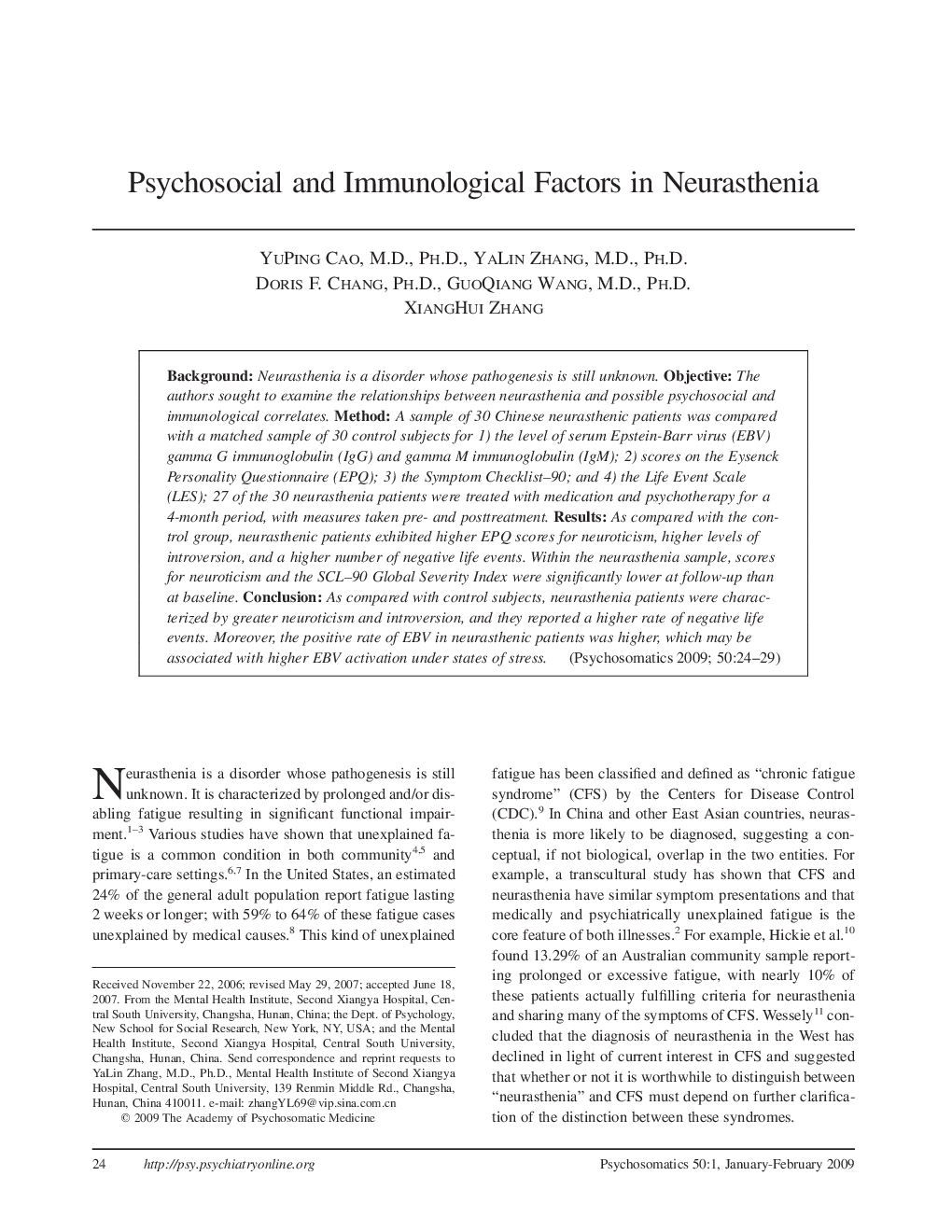| Article ID | Journal | Published Year | Pages | File Type |
|---|---|---|---|---|
| 338008 | Psychosomatics | 2009 | 6 Pages |
BackgroundNeurasthenia is a disorder whose pathogenesis is still unknown.ObjectiveThe authors sought to examine the relationships between neurasthenia and possible psychosocial and immunological correlates.MethodA sample of 30 Chinese neurasthenic patients was compared with a matched sample of 30 control subjects for 1) the level of serum Epstein-Barr virus (EBV) gamma G immunoglobulin (IgG) and gamma M immunoglobulin (IgM); 2) scores on the Eysenck Personality Questionnaire (EPQ); 3) the Symptom Checklist–90; and 4) the Life Event Scale (LES); 27 of the 30 neurasthenia patients were treated with medication and psychotherapy for a 4-month period, with measures taken pre and posttreatment.ResultsAs compared with the control group, neurasthenic patients exhibited higher EPQ scores for neuroticism, higher levels of introversion, and a higher number of negative life events. Within the neurasthenia sample, scores for neuroticism and the SCL–90 Global Severity Index were significantly lower at follow-up than at baseline.ConclusionAs compared with control subjects, neurasthenia patients were characterized by greater neuroticism and introversion, and they reported a higher rate of negative life events. Moreover, the positive rate of EBV in neurasthenic patients was higher, which may be associated with higher EBV activation under states of stress.
